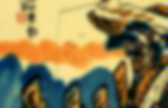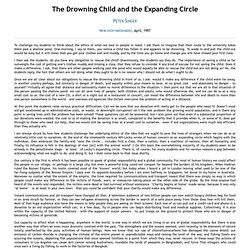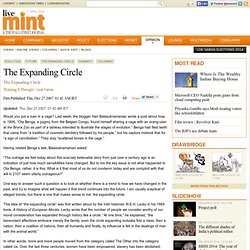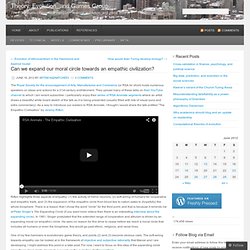

The Drowning Child and the Expanding Circle, by Peter Singer. To challenge my students to think about the ethics of what we owe to people in need, I ask them to imagine that their route to the university takes them past a shallow pond.

One morning, I say to them, you notice a child has fallen in and appears to be drowning. To wade in and pull the child out would be easy but it will mean that you get your clothes wet and muddy, and by the time you go home and change you will have missed your first class. I then ask the students: do you have any obligation to rescue the child? Unanimously, the students say they do. The importance of saving a child so far outweighs the cost of getting one’s clothes muddy and missing a class, that they refuse to consider it any kind of excuse for not saving the child.
At this point the students raise various practical difficulties. I am always struck by how few students challenge the underlying ethics of the idea that we ought to save the lives of strangers when we can do so at relatively little cost to ourselves. Www.worldtradelaw.net/articles/bacchuslecky.pdf. The Expanding Circle. Updated: Thu, Dec 27 2007. 01 42 AM IST Would you put a man in a cage?

Last week, the blogger Hari Balasubramanian wrote a post about how, in 1906, “Ota Benga, a pygmy from the Belgian Congo, found himself sharing a cage with an orang-utan at the Bronx Zoo as part of a tableau intended to illustrate the stages of evolution.” Benga had filed teeth that came from “a tradition of cosmetic dentistry followed by his people,” but his captors mistook that for “a sign of cannibalism.”
They duly “scattered bones in the cage.” Having related Benga’s tale, Balasubramanian asked: “The outrage we feel today about this scarcely believable story from just over a century ago is an indication of just how much sensibilities have changed. One way to answer such a question is to look at whether there is a trend to how we have changed in the past, and try to imagine what will happen if that trend continues into the future. Can we expand our moral circle towards an empathic civilization? June 18, 2012 by Artem Kaznatcheev The Royal Society for the encouragement of Arts, Manufactures and Commerce (or RSA for short) hosts numerous speakers on ideas and actions for a 21st century enlihtenment.

They upload many of these talks on their YouTube channel to which I am recent subscriber. I particularly enjoy their series of RSA Animate segments where an artist draws a beautiful white board sketch of the talk as it is being presented (usually filled with lots of visual puns and extra commentary). As a way to introduce our readers to RSA Animate, I thought I would share the talk entitled “The Empathic Civilisation” by Jeremy Rifkin: Rifkin highlights three aspects of empathy: (1) the activity of mirror neurons, (2) soft-wiring of humans for cooperative and empathic traits, and (3) the expansion of the empathic circle from blood ties to nation-sates to (hopefully) the whole biosphere. One of my few hammers is evolutionary game theory, and points (2) and (3) become obvious nails.